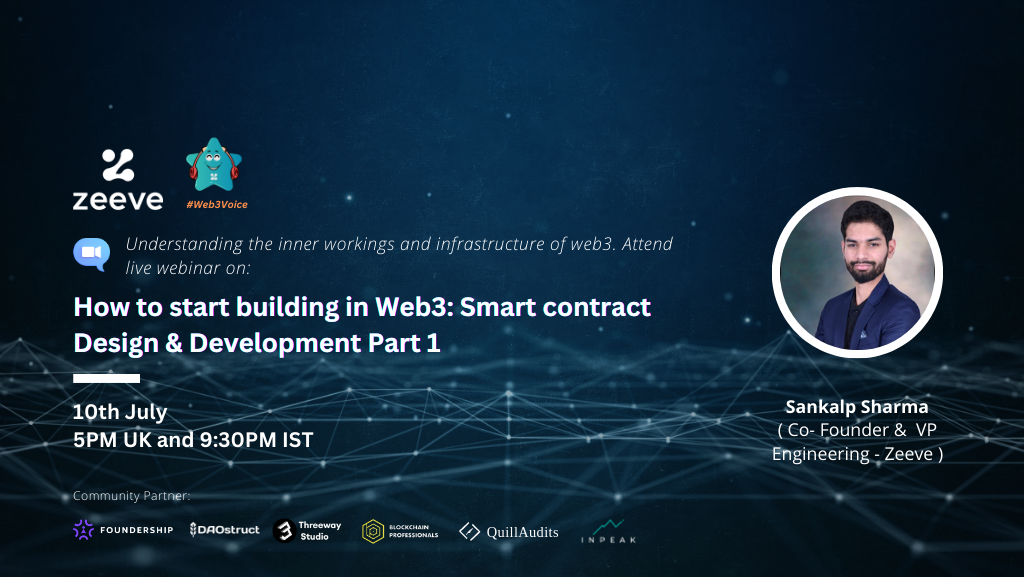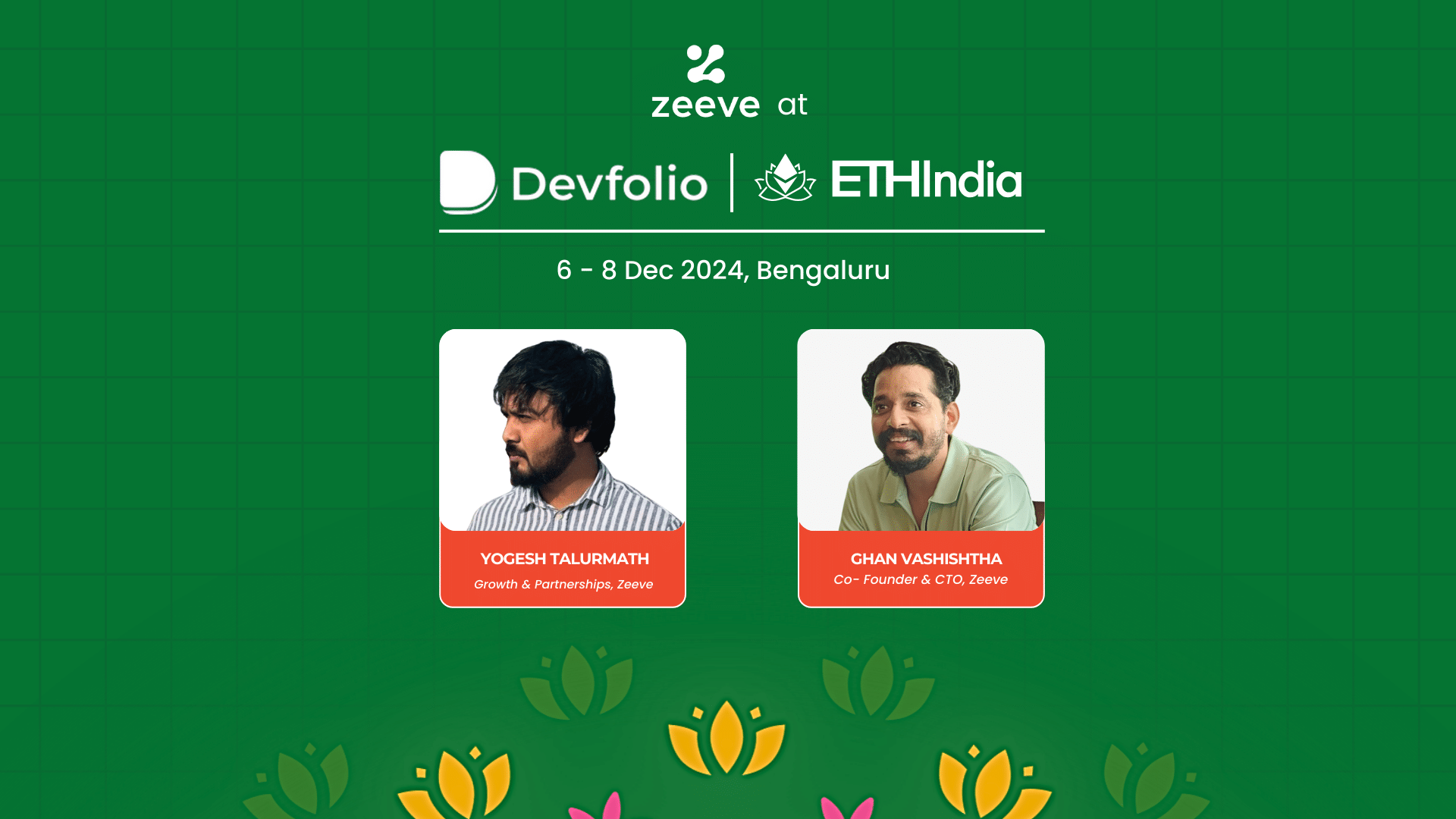Zeeve organized a webinar titled: “smart contract design and development.”
Sankalp Sharma, Co-Founder & VP of Engineering of Zeeve, starts the webinar by briefly introducing the topic of smart contract design and development, emphasizing the importance of understanding smart contracts and their potential to address challenges faced by traditional contracts.
Sankalp Sharma explains that the session is designed to be beginner-friendly, so no previous knowledge of smart contracts is required. He also briefly overviews what will be covered in the session and expresses his hope that participants will find the session productive.
He highlights the importance of understanding smart contracts and explains that contracts are agreements between multiple parties. Still, traditional contracts can be challenging to comprehend, securely store, and resolve disputes.
Sankalp compares the concept to a traditional rental agreement, stating that smart contracts can automate and manage various criteria, ensuring the rights and security of both parties involved.
He further mentions that the use case of NFTs (non-fungible tokens) can involve specific rules encoded in the smart contract, which can be examined and challenged if necessary.
Sankalp delves into the use case of artwork royalties and how smart contracts can dynamically manage the distribution of royalties based on predetermined rules.
He goes on to explain how smart contracts function in a decentralized manner within a blockchain network. Unlike traditional web applications, where a centralized backend manages user requests, smart contracts are floating code within the blockchain network.
Moreover, Sankalp highlights the streamlined business processes achieved through smart contracts, facilitating automation and collaboration between multiple parties.
He also mentions the supported languages for each platform, such as Solidity for Ethereum and Java or Kotlin for Fabric. He also highlights the importance of permission and consensus in smart contract execution, with Ethereum being public and Fabric being private.
Sankalp discusses the different design methodologies involved in smart contract development.
He also recommends understanding the purpose and utilization of these global variables to incorporate them into smart contract logic effectively.
Furthermore, Sankalp explains some variables, operators, and programming concepts in smart contract design and development.
He discusses different forms of development, including loops, strings, and arrays, in the context of smart contract design and development. Sankalp explains how loops can help minimize output duplication and keep execution costs minimal.
Sankalp introduces the Remix IDE, a specialized code editor that enables users to write solidity files, deploy smart contracts, and run tests to aid in writing smart contracts.
Lastly, Sankalp explores smart contract audits and their significance in development. Audits help ensure the correct data variables are used to create smart contracts.
In conclusion, Sankalp mentions that the next session will delve deeper into smart contracts, covering various functions and concepts involved in their implementation.
Check out our previous videos on the Zeeve interface, deployments, podcasts, presentations, explanations, and more.
To build on Zeeve – https://app.zeeve.io/
Follow Zeeve on Twitter – https://twitter.com/0xZeeve
Follow Zeeve on LinkedIn – https://www.linkedin.com/company/0xzeeve
Follow Zeeve on Medium – https://medium.com/zeeve
Follow Zeeve’s Telegram Channel – https://t.me/ZeeveDeeptech.
To find out more about Zeeve – https://www.zeeve.io/





